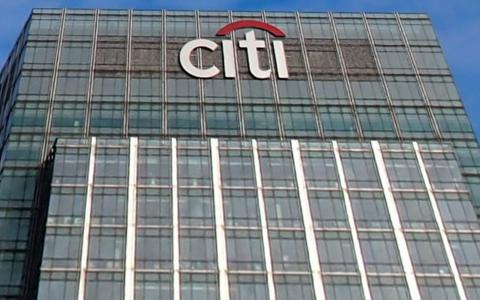
Jane Fraser, CEO of Citigroup, adopts a leadership mantra resonating with her challenging role: "Have big ears and thick skin." This approach is particularly pertinent as she steers the colossal yet underperforming bank, Citigroup, through turbulent times. Fraser, despite her relatively recent appointment, has been a keen listener and resilient leader amidst intense scrutiny.
Our recent analysis of Citigroup highlighted two key points: the persistent anticipation of a turnaround since the 2008-09 financial crisis, and the potential of Fraser's leadership to catalyze this change. This potential is underscored by the recent outperformance of Citigroup's shares against the market and the KBW Nasdaq Bank Index, signaling growing investor confidence in Fraser's restructuring strategy.
Citigroup's relative resilience during the banking sector upheaval in March is notable. Despite share price declines, Citigroup's performance was more stable compared to its peers, partly due to its robust deposit base. This base is anchored by Citigroup’s treasury and trade-solutions group, which boasts an expansive and reliant client network across numerous countries.
Fraser's strategic prudence is evident in Citigroup's handling of deposit surges and low loan demands during the pandemic. Unlike its peers, Citigroup minimized its unrealized losses on its balance sheet, a testament to Fraser's risk-averse and astute asset liability management.
The bank's limited exposure to commercial real estate, a sector currently facing high vacancy rates, is another strategic advantage. Citigroup's focus is now firmly on its turnaround, which entails streamlining its business structure and reducing management layers.
Despite inheriting longstanding challenges like historical missteps and technological underinvestment, Fraser is expected to enhance Citigroup's operational efficiency and modernize its technology platforms. Investments in the treasury and trade-solutions group, a vital revenue generator, are also part of this transformative agenda.
Fraser anticipates that these strategic investments will ultimately drive revenue growth and operational efficiency, with tangible benefits expected to be visible in the upcoming financial reports.
Another focal point for Fraser is the integration of ESG, with an added emphasis on security, into Citigroup's global operations. This strategy positions Citigroup favorably to address the diverse needs of its multinational clients in a volatile global environment.
Despite the dampening effect of higher interest rates on investment banking activities, Citigroup has seen robust performance in its services business. This is particularly evident in the bank’s institutional services group, which has shown impressive profit growth.
Fraser's outlook on the Federal Reserve's inflation management is cautiously optimistic. She anticipates a steady approach towards achieving the inflation targets, with the economy progressively adjusting to new market dynamics.
Regarding the possibility of a recession, Fraser maintains a balanced view. She acknowledges the challenges but remains confident in the resilience of the U.S. economy and its entrepreneurial spirit. She foresees any potential recession as manageable, given the robust state of labor markets and corporate balance sheets.
In summary, Fraser's leadership at Citigroup is marked by strategic caution, operational restructuring, and a focus on efficiency and technology modernization. As she navigates Citigroup through these changes, her approach may evolve to reflect the bank’s progress in reclaiming its leading position in the financial sector.



